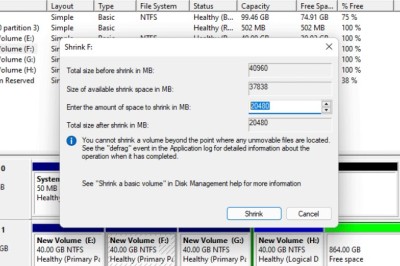views
When you start thinking about building a better registration flow in a WooCommerce store, the idea of assigning user roles automatically usually comes up pretty fast because it just saves a lot of time when new customers or specific types of users land on your site, and you do not want to manage this manually.
There is a simple way to make this work with the help of Custom user registration fields for WooCommerce, which lets you collect extra details during sign up and then use those details to decide what type of role the user should get right at the moment they register. I have tried a lot of methods in the past, and honestly, this approach stays the cleanest since you do not need to build complicated setups or fight with too much code.
The idea is pretty simple. You add custom fields that gather the exact information you want. That information then becomes your deciding factor behind which role should be assigned to that new account.
Because you are working with a WooCommerce user registration plugin in the background that already supports advanced field creation, you get to play around with various input types, and you also gain better control over your registration flow.
Why automatic user role assignment matters more than people realize
I used to brush this feature off, thinking it was only for huge membership sites, but the more I worked with different stores, the more I noticed how common the need actually is. You might have regular buyers, wholesale customers, service based clients, or partner groups that require a specific type of account.
Assigning those roles manually always turns into a mess. You miss requests and you forget to update accounts, and before you know it, people start contacting you asking why they cannot access something they were supposed to.
When you build your registration form with Custom user registration fields for WooCommerce you give your store the ability to sort users into the right category without asking an admin to do anything.
Maybe you could add a field that asks the customer what type of buyer they are or what purpose they need the store for. Maybe you can add a field for business verification or a simple selection input. Once they pick their answer, the system uses that to determine the role.
Some reasons why automatic role assignment helps
- It reduces the number of manual approvals
- It gives new users instant access to anything restricted to their role.
- It keeps your account list organized.
- It supports membership style setups.
- It works well for wholesale situations.
- It minimizes human mistakes that usually pile up during busy days.
This is also one of those features that sounds minor until you actually try it once, and then you wonder why you never set it up earlier.
How to prepare your registration form for role based sorting
Before the plugin can assign a role automatically, you need to set up your fields properly. Luckily, the process feels straightforward even if you are not a heavy coder. You just have to think about what information will help you determine the correct role.
For example, if you want to assign a wholesale role, you might ask something like Are you buying for personal or business use. If it is the business option, the system can give them the wholesale role. If it is personal shopping, they can stay as a default customer.
Another example would be service providers. Maybe you want to offer them different pricing or special dashboards. You simply ask what type of account they need. It does not need to be complicated at all. In fact, simple questions usually work best because they avoid confusion.
Some common field types you can use for role sorting
- Dropdown field
- Radio field
- Checkbox field
- Text input field
- Email confirmation field if you want added verification
Once you have added these fields, they become available in the registration screen. The next step is connecting the chosen field to the role that should be applied. The plugin supports storing custom field values inside user meta, so you can act on that data using conditional logic built into the plugin or through a tiny bit of PHP if you want more control.
Setting up automatic role assignment without making it too technical
A lot of people worry about this part, thinking they need to write complicated code, but you really do not. With the help of the plugin structure, you simply map the selected field value to a specific user role. The plugin stores custom field responses as user meta. This lets WooCommerce read those values right after registration is completed.
Here is the basic logic most store owners follow, even if they are not technical
- Add the custom field to the registration form.
- Give the field a simple meta key.
- Decide which value corresponds to which user role.
- Add a short condition that checks the submitted value.
- If it matches the condition, assign the correct role.
Once this is set up, the workflow becomes automatic. Every new user gets sorted based on the answer they provide. If someone tries to skip the field, you can make it required so the system always has something concrete to work with.
This approach also avoids the messy habit of creating too many different registration pages. One single clean registration page handles everything, and the plugin takes care of the sorting behind the scenes. If you run a store with both retail and wholesale buyers, this becomes a lifesaver.
How this simple change improves your WooCommerce experience long term
People underestimate how much time goes into cleaning user lists and updating roles one by one. When you automate role assignment, you free yourself from that cycle completely. I have seen this make a noticeable difference for store managers who already have enough tasks piled up.
It also makes onboarding smoother because users do not have to wait for someone to approve or assign a role. They get immediate access to what they need. This alone improves conversion, especially for wholesale customers who usually want to log in and order right away instead of waiting hours for manual approval.
Another thing I noticed is how much cleaner analytics become when users are placed into the correct roles from day one. Reports make more sense. Segments stay consistent. You can run targeted coupons or product visibility rules based on those roles without worrying about who is incorrectly labeled.
And because the plugin allows you to create a wide range of custom fields, you can really shape your registration form into something that fits your exact store type instead of using the default WooCommerce form that barely collects enough information for anything meaningful.
Final thoughts on using Custom user registration fields for WooCommerce for automatic roles
You do not need to build a complicated membership system or some endless custom coded solution. Using Custom user registration fields for WooCommerce and pairing it with a simple condition based workflow gives you a clean way to assign roles with almost no effort after initial setup. It stays flexible enough to grow with your store, whether you run wholesale access private store areas or anything that depends on user roles.
You get a smoother registration process, cleaner user management, and fewer support requests from people confused about their access with the WooCommerce user registration plugin. And once you use this approach even for a short time, it becomes pretty hard to go back to manual role assigning because the difference is noticeable.
If your store depends on user groups or special customer types, this is one of those features that just fits naturally into the workflow and stays worth keeping for the long term.
























Comments
0 comment